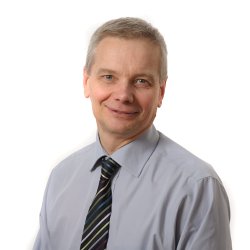Large eddy simulation of centrifugal Rayleigh-Bénard convection in turbomachinery disc cavities
Applications are invited for a PhD studentship in the Rolls-Royce supported Thermo-Fluid Systems University Technology Centre at the University of Surrey. The appointee will develop, apply and interpret computer models to study flow and heat transfer in rotating disc cavities subject to free convection in the centrifugal force field interacting with forced cooling flows. The research is directly related to axial compressor drum cooling in gas turbine engines and is expected to lead to improvements of engine thermo-mechanical modelling in industry.
Start date
1 October 2022Duration
3.5 yearsApplication deadline
Funding source
University of Surrey funding with industrial sponsorshipFunding information
Open to UK and international applicants. The stipend for this position is the UKRI standard rate (currently £16,062 p.a. 2022/23) plus a possible supplement of £3,000 p.a.
About
With use of hydrogen and sustainable fuels, gas turbines are expected to play a significant part in achieving net-zero carbon emissions. Hence there is a need for continuing improvement in gas turbine engine design and development of reliable predictive methods for engine performance and design. Modern aeroengine design focuses on higher pressure ratios and smaller engine cores. Compressor blade tip clearance thus becomes increasingly important for engine performance. Control of the clearance during steady and transient engine operating conditions requires calculation of disc radial growth, which in turn requires the calculation of the convective heat transfer inside the rotating compressor disc cavities. The flow inside the compressor cavities is buoyancy-driven, and is highly unstable, unsteady and three-dimensional. Conventional RANS and URANS models are incapable of predicting the heat transfer in this kind of flow, but recent research at the University of Surrey has demonstrated that large eddy simulation (LES) can give useful predictions. This PhD project will develop and use advanced LES technology to investigate the nature of the buoyancy-driven flow in rotating compressor cavities, comparing with high fidelity experimental measurement from collaborators, and interpreting results to develop thermal modelling techniques suitable for use in industry.
The successful candidate will have the opportunity to work closely with supervisors Professor John Chew and Dr Olaf Marxen at the University of Surrey and within the Centre for Aerodynamics and Environmental Flow. There will also be opportunities to interact with collaborating partners at Rolls-Royce and the University of Bath. This will deliver insight and understanding of important physical mechanisms that can lead to improvements in the state of the art.
Related links
School of Mechanical Engineering Sciences Centre for Aerodynamics and Environmental FlowEligibility criteria
Open to UK and international applicants. Applicants should have a first class or a good upper second degree in engineering or a related subject. Experience in programming, or willingness to develop this skill, would be desirable.
If English is not the first language, IELTS 6.5 or above (or equivalent) is required, with no sub-test score less than 6.
How to apply
Applications should be submitted via the Aerodynamic and Environmental Flow PhD programme page on the "Apply" tab. Please clearly state the studentship title and supervisor on your application.
Aerodynamic and Environmental Flow PhD
Studentship FAQs
Read our studentship FAQs to find out more about applying and funding.
Application deadline
Contact details
Research
Research group: Centre for Aerodynamics and Environmental Flow

Studentships at Surrey
We have a wide range of studentship opportunities available.

